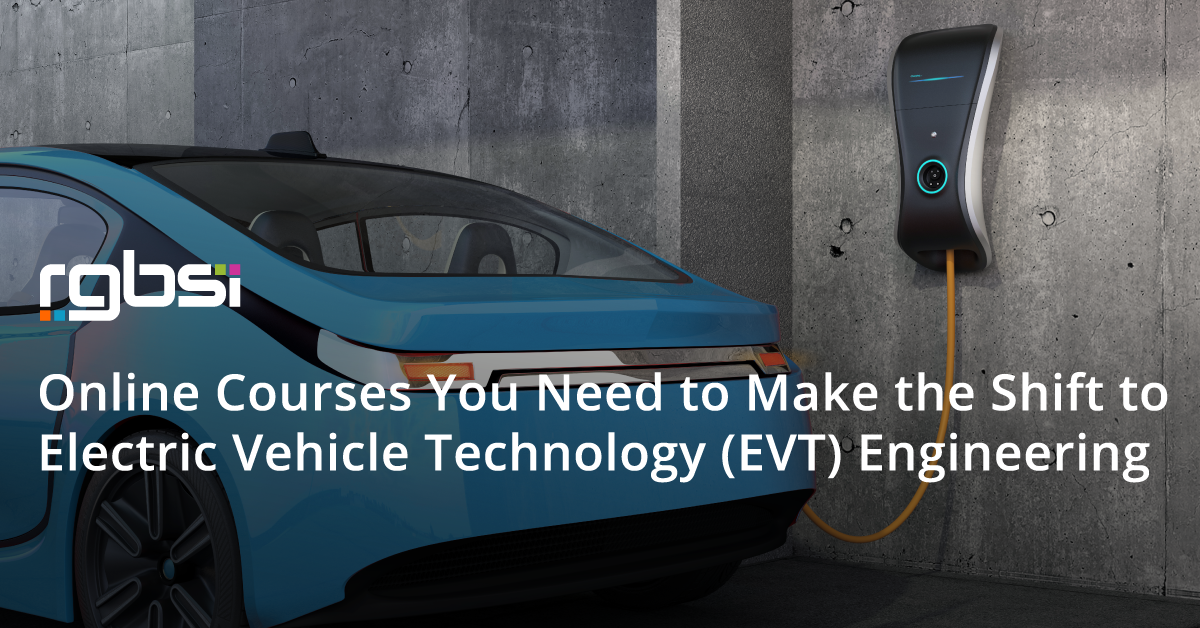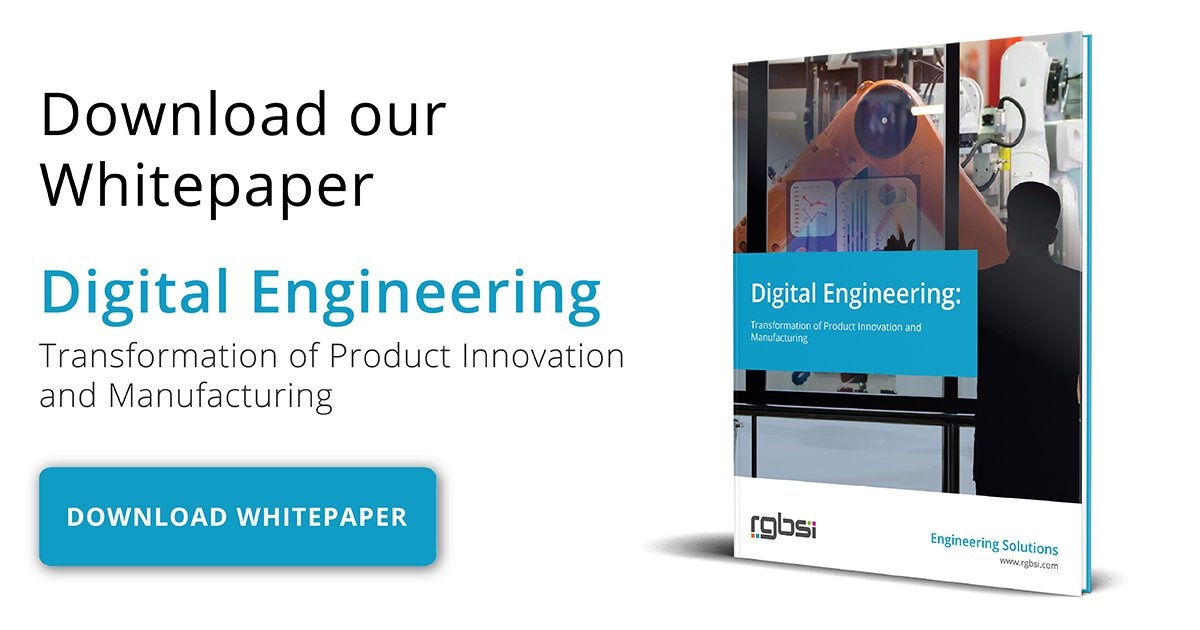
The deployment of electric vehicle technology continues to progressively expand around the world. The market for electric vehicles is expected to grow 21% by 2030. The future of work is shifting across automotive and manufacturing segments to support electric cars and renewable energy initiatives.
As part of the Industry 4.0 (the 4th industrial revolution), electric vehicles are creating technological disruption. According to University of California Berkeley, the electric vehicle industry will create 50,000 new jobs by 2030. Electric vehicles are the future of the automotive industry.
So, what does this mean for engineers? A transition of skills is occurring. In comparison to traditional gasoline powered vehicles, the development of electric vehicles requires a greater bandwidth of expertise. This includes cross-collaboration across employees with different education and professional experience. Therefore, the need for diverse engineering expertise with granular skillsets is a requirement.
The electric vehicle technology industry presents opportunistic career paths for STEM related occupations. According to BLS, employment opportunities in the electric vehicle industry are expected to grow across all occupations.
Continuing education courses allow you to keep up to speed with market trends and in demand skillsets. If you are an engineer looking to make the shift to electric vehicle technology (EVT) engineering, here are the online courses (free & paid) you need. These courses will help you learn something new or expand upon your existing skillset.
The Online Courses for Engineers in EVT
Topic: Intro to Electronics Engineering Technology
- Course: Electronics Engineering Technology Fundamentals
- Summary: This course introduces fundamental principles and concepts in electrical and electronics engineering technology including safety, direct current (DC), alternating current (AC), digital, and solid-state electronic circuits.
- Price: $19.99 $11.99
Topic: Lithium-Ion Batteries
- Course: Introduction to Lithium-ion Battery Management
- Summary: This course provides an overview of the evolution of electric vehicles and lithium-ion cells, how Lithium ion cells work and what is inside them, fundamentals of battery management.
- Price: Free
Topic: Internal Combustion Engines
- Course: Internal Combustion Engines - IC Engines
- Summary: This course covers in detail about IC engines, its main components, valve timing diagrams, 4-stroke & 2-stroke engines, actuator indicator diagrams, scavenging, detonation, fuel ignition system, injection system & many more.
- Price: $24.99 $11.99
Topic: Electric Motors
- Course: Electric and Hydrogen Cars with sustainable Energy
- Summary: This course covers basic principles of electrical vehicles, electrical or hydrogen driven car purchase factors, the potential of electrical vehicles fueled with hydrogen, and the future of energy.
- Price: Free
Topic: Electric Circuits
- Course: Electrical Engineering: Electric Circuits Masterclass
- Summary: This course is designed to provide a complete overview of electric circuit analysis. Learn everything about electric circuits, from the basics such as what an electric circuit is and the fundamentals of electrical quantities like voltage, current, and power, all the way to complex techniques for analyzing circuits.
- Price: $59.99 $11.99
Topic: E-Powertrain
- Course: Electric Vehicle Transmission / Powertrain Course
- Summary: This course offers a detailed technical explanation with design considerations of the EV powertrain components, how they work together, and how they compare to the internal combustion engine in value.
- Price: $59.99 $12.99
Topic: Embedded Systems
- Course: Foundations of Embedded Systems with ARM Cortex and STM32
- Summary: This course is the way to a higher paying career in embedded systems, with deep understanding of ARM Cortex and STM32.
- Price: $59.99 $11.99
Topic: Suspension & Braking
- Course: Vehicle Dynamics in Automobiles
- Summary: This course will help you in understanding the in fundamentals of an automobile that includes braking, suspension, steering, tires, and ABS. This course covers basics working, principles and fundamentals of all the topics mentioned herein the curriculum.
- Price: $59.99 $11.99
Topic: Battery Power Management
- Course: Batteries, Batteries, Batteries!
- Summary: This course offers insight on the basic principles of how batteries work, important concepts in batteries such as current, voltage, and energy density, different types of batteries and their applications, and what lithium batteries are and how they differ between them.
- Price: $19.99 $12.99
Topic: Machine Learning
- Course: Efficient Machine Learning
- Summary: This comprehensive course will be your guide to learning how to scale-up your machine learning model to the optimal state possible, you 'll be learning everything you need to move your machine learning model to the next stage.
- Price: $59.99 $11.99
Topic: Data Science
- Course: The Data Science Course 2020: Complete Data Science Bootcamp
- Summary: This course covers complete data science training: mathematics, statistics, python, advanced statistics in python, machine & deep learning.
- Price: $69.99 $14.99
Topic: Digital Electronics
- Course: Digital Electronics: Robotics, learn by building module II
- Summary: In this module 2 course, you will build digital electronic circuits, use and program microcontrollers like the PIC and Arduino, and connect to the real world with them.
- Price: $69.99 $14.99
Topic: Robotic Operating Systems (ROS)
- Course: ROS for Beginners II: Localization, Navigation and SLAM
- Summary: This course provides a practical approach to learn the foundation of mobile robots SLAM and navigation with ROS.
- Price: $69.99 $14.99
Engineering Careers in EVT
Chemical Engineers
They focus on the chemical power storage of batteries. They work on battery design, battery chemical structure, and battery technology.
Electrical Engineers
Their primary focus in on powering cars with the generation and distribution of electricity from the engine to the battery to the motor. They are experts in electric vehicle drive components and energy storage systems.
Electronics Engineers
Different from electrical engineers, they focus on the design and development of control systems and added electronic components for vehicles.
Industrial Engineers
Their focus is on maximizing workflow and spatial use. They handle original manufacturing plans and the design of manufacturing plants to fit the needs of electric vehicles. This includes design production processes and retooling machines.
Materials Engineers
They focus on evolving EV mechanical components with lightweight and stronger materials, so vehicles can run more efficiently. This includes testing new materials and sourcing eco-friendly alternatives.
Mechanical Engineers
They focus on engines, electric motors, or other mechanical devices such as drive trains, transmissions, and steering systems.
Mechanical Drafters
They work to create detail drawings with CAD programs for assembling machinery and mechanical systems.
Software Developers, Applications
They use computer science and mathematical analysis skills to design and develop vehicle software and systems. Modern cars rely on software applications for things such as GPS, radio, and hands-free calling all run through a computerized display.
Commercial and Industrial Designers
They handle aesthetics, functionality, and reliability of vehicles. They work with engineers to improve vehicle design according to consumer tastes and preferences for functions and aesthetics.
About RGBSI
At RGBSI, we deliver total workforce management, engineering, quality lifecycle management, and IT solutions that provide strategic partnership for organizations of all sizes.
Engineering Solutions
As an organization of engineering experts, we understand the importance of modernization. By pairing modern technology with design expertise, we elevate fundamental engineering principles to accommodate growing product complexity requirements. We work with clients to unlock the full potential of their products and enable future innovation. Learn more about our automation and digital engineering services.
WORK WITH RGBSI
At RGBSI, we provide engineering, IT, and administrative job opportunities for contract, contract to hire, project based, and permanent positions. We have established relationships with top companies in engineering and IT industries around the globe. The opportunities are endless for engaging in different career paths.
View our job portal to see all of our current openings.












